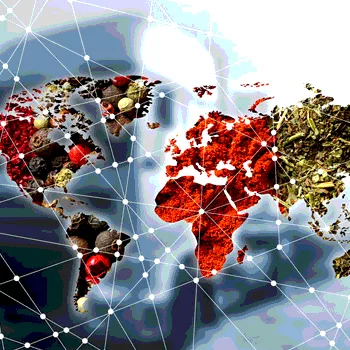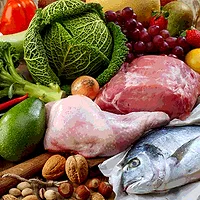The Most Common Food Safety Incidents Related to Developing Countries

Nowadays, we live in a world where there are little to none barriers among individuals, communities, countries, and continents. What happens in a very small village in Africa could affect largest cities in the Americas, Europe, and elsewhere worldwide. The food supply chain, in terms of international trade, is a perfect example where food can travel between countries and even continent in hours. Safe food is critical for better health, food security, and economic development to achieve sustainable development goals. However, serious food safety threats continue to be a widespread concern globally.
Both developed and developing countries suffer from food safety threats caused by biological, chemical, and physical food safety hazards; bacterial and viral pathogens are responsible for 82 percent of all foodborne illnesses worldwide. Billions of people are at risk for ingesting unsafe food: Millions become sick and hundreds of thousands die every year worldwide. According to the World Health Organization, foodborne diseases caused by bacteria, viruses, parasites, and toxic chemicals have high negative impacts on global human health, with 600 million people becoming ill and 420,000 people dying—including 125,000 children under 5 years of age—every year worldwide. According to the World Bank, the total cost of foodborne disease in developing countries is about $110 billion per year.
The following are some of the most popular food safety incidents related to developing countries:
• In 1991, a Vibrio cholerae outbreak was associated with the consumption of seafood products in Peru. The outbreak spread to many other Latin American countries, resulting in about 400,000 illnesses and 4,000 deaths. This outbreak cost Peru about $770 million in food trade and tourism losses.
• Beginning in 1996, more than 1,400 cases of cyclosporiasis were recorded in the United States and Canada. A traceback investigation conducted by the U.S. Food and Drug Administration indicated that the source was contaminated raspberries imported from Guatemala. In 1997, another large outbreak in the U.S. and Canada took place, also linked to the Guatemalan raspberries. In 2000, two outbreaks were traced back to a farm in Guatemala. In 2001, Guatemalan raspberry exports to the U.S. were slashed by more than 80 percent. Export of blackberries was also down by 50 percent that year. As a result, the Guatemalan food industry lost millions of dollars.
• In 2004, the largest aflatoxicosis outbreak, associated with the consumption of aflatoxin-contaminated maize, resulting in 317 illnesses and 125 deaths, was reported in Kenya. Failure to meet international aflatoxin standards costs African countries about $750 million annually. The Kenyan Government adopted Aflasafe as a food safety intervention to minimize the negative health and economic effects of aflatoxin.
• In 2008, over 300,000 Chinese infants were sickened, 50,000 were hospitalized, and 6 died after consuming powdered milk contaminated with melamine, an industrial chemical used for producing plastic. Two people were executed and several sent to prison. This food safety incident shattered the confidence of people in the entire Chinese food supply. After this scandal, the “Chinese Food Safety Law” was established in 2009 and passed in 2015.
• In 2011, a foodborne outbreak caused by Shiga toxin-producing Escherichia coli O104:H4 occurred. The outbreak was associated with fenugreek sprouts (seeds were imported from Egypt) and was the first and largest O104:H4 outbreak associated with sprouts in history. The outbreak was initiated in Germany, and cases quickly spread throughout Europe and elsewhere. More than 4,000 people became ill and 50 died in 16 countries. It was estimated that, in the European Union, farmers and food industries lost about $1.3 billion, and emergency aid provided to 22 European states cost about $240 million. The European Union banned importation of fenugreek seeds with 15 other food products from Egypt. It was estimated that the ban cost Egypt about $4.2 billion. It is believed that this incident encouraged the Egyptian government to develop a new food safety law, which the Egyptian parliament approved in 2017.
• In 2017 and 2018, about 1,060 people had become ill and 216 died in the largest recorded Listeria (Listeria monocytogenes ST6) outbreak. The source of this outbreak has been linked to processed meat products (polony, Russians, and Viennas) from one of the largest food companies in South Africa (Tiger Brands). The South African regulation does not require Hazard Analysis and Critical Control Points in meat processing plants.
There is an urgent need to address food safety on a global scale to ensure safe food, regardless of its source; what is unsafe for a person in developed countries (the United States, Canada, Ireland, France, etc.) is unsafe for a person in developing countries (Malawi, Egypt, Guatemala, Nepal, etc.). A global collaboration between developed and developing countries is a must to fight foodborne pathogens. There must also be serious international efforts to ensure that governments in developing countries are seriously working to fulfil the obligation to safe food. Developing countries must adopt and implement international food safety standards, management programs, and technologies along the entire food chain to have healthy and productive populations and sustainable international trade. The author strongly believes in the harmonization of food safety regulations, standards, and indices for the globe, and urges international food safety organizations to direct the discussion toward a globalized food safety system: one food safety system for all, if possible, to build effective food safety systems in developing countries.
Barakat Mahmoud, Ph.D., is an international food safety expert with nearly 30 years of experience in food safety. He has provided technical assistance in food safety in several developing countries in Africa, Asia, Central America, Middle East, and the Caribbean.
Looking for quick answers on food safety topics?
Try Ask FSM, our new smart AI search tool.
Ask FSM →








